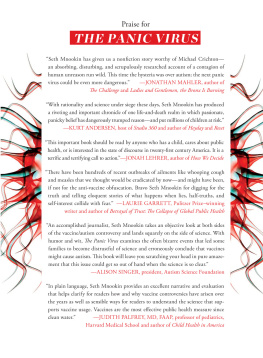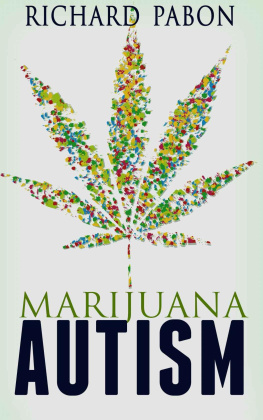Largent - Vaccine: the debate in modern America
Here you can read online Largent - Vaccine: the debate in modern America full text of the book (entire story) in english for free. Download pdf and epub, get meaning, cover and reviews about this ebook. City: Baltimore, year: 2012, publisher: Johns Hopkins University Press, genre: Home and family. Description of the work, (preface) as well as reviews are available. Best literature library LitArk.com created for fans of good reading and offers a wide selection of genres:
Romance novel
Science fiction
Adventure
Detective
Science
History
Home and family
Prose
Art
Politics
Computer
Non-fiction
Religion
Business
Children
Humor
Choose a favorite category and find really read worthwhile books. Enjoy immersion in the world of imagination, feel the emotions of the characters or learn something new for yourself, make an fascinating discovery.

- Book:Vaccine: the debate in modern America
- Author:
- Publisher:Johns Hopkins University Press
- Genre:
- Year:2012
- City:Baltimore
- Rating:5 / 5
- Favourites:Add to favourites
- Your mark:
- 100
- 1
- 2
- 3
- 4
- 5
Vaccine: the debate in modern America: summary, description and annotation
We offer to read an annotation, description, summary or preface (depends on what the author of the book "Vaccine: the debate in modern America" wrote himself). If you haven't found the necessary information about the book — write in the comments, we will try to find it.
Largent: author's other books
Who wrote Vaccine: the debate in modern America? Find out the surname, the name of the author of the book and a list of all author's works by series.
Vaccine: the debate in modern America — read online for free the complete book (whole text) full work
Below is the text of the book, divided by pages. System saving the place of the last page read, allows you to conveniently read the book "Vaccine: the debate in modern America" online for free, without having to search again every time where you left off. Put a bookmark, and you can go to the page where you finished reading at any time.
Font size:
Interval:
Bookmark:
VACCINE
The Debate in Modern America
MARK A. LARGENT

2012 The Johns Hopkins University Press
All rights reserved. Published 2012
Printed in the United States of America on acid-free paper
9 8 7 6 5 4 3 2 1
The Johns Hopkins University Press
2715 North Charles Street
Baltimore, Maryland 21218-4363
www.press.jhu.edu
Library of Congress Cataloging-in-Publication Data
Largent, Mark A.
Vaccine : the debate in modern America / Mark A. Largent.
p. ; cm.
Includes bibliographical references and index.
ISBN 978-1-4214-0607-7 (hdbk. : alk. paper) ISBN 1-4214-0607-1 (hdbk. : alk. paper) ISBN 978-1-4214-0672-5 (electronic) ISBN 1-4214-0672-1 (electronic)
I. Title.
[DNLM: 1. Vaccinesadverse effectsUnited States. 2. Attitude to HealthUnited States. 3. Autistic DisorderetiologyUnited States.
4. Dissent and DisputesUnited States. QW 805]
615.372dc23 2011048241
A catalog record for this book is available from the British Library.
Special discounts are available for bulk purchases of this book. For more information, please contact Special Sales at 410-516-6936 or specialsales@press.jhu.edu.
The Johns Hopkins University Press uses environmentally friendly book materials, including recycled text paper that is composed of at least 30 percent post-consumer waste, whenever possible.
To my friend,
Chris Young
Thank you, Chris, for all of your support,
encouragement, and guidance
VACCINE
Over the past decade, American parents have become increasingly anxious about following their pediatricians recommendations to fully vaccinate their children. As a result, about 40 percent of American parents today have chosen to delay certain vaccines or outright refuse to allow their childrens physicians to vaccinate their children with one or more of the recommended or mandated vaccines. Their anxieties arise from several sources, but the most widely discussed concern among parents is the claim that vaccines may cause autism. Despite assurances from every mainstream scientific and medical institution that vaccines do not cause autism, millions of parents fear that they do, and it shapes their decisions about whether and when to vaccinate their children.
The modern American debate over vaccines and autism is a proxy debate. It is a debate in which both sides uphold claims that are simplistic stand-ins for real problems. Underlying parents fears about a link between vaccines and autism are a complex set of concerns about the modern vaccine schedule that they rarely articulate clearly. Health officials prefer to debate within the limited terms of the claim that vaccines cause autism, because it frames the debate in terms that are familiar to them and because the autism question keeps the controversy within the confines of their scientific and technical expertise. It also allows health officials to avoid admitting that many of the concerns of parents are not scientific in nature, and thus scientists and physicians can have only a limited say in alleviating them.
This book is an account of the emergence of the modern American vaccine controversy. It reveals that, while the polemicists have debated within the confines of the vaccines-cause-autism argument, serious real problems with the current vaccine regime remain unresolved. These problems are discussed in detail in the books final chapter. For now, it is enough to say that the debate about vaccines and autism obscures serious problemssome inherent to the vaccines themselves and some unintentionally generated over the last several decadesthat animate parents anxieties about vaccines. The entire process is conducted under substantial time and financial pressures; so many shots are given at such a young age against so many obscure diseases without parents having a clear understanding of why we are vaccinating against certain diseases and not others. No reasonable person ought to be surprised that the process has created apprehension among thoughtful parents.
This is not a history of bogeymen conjured by parents who simply distrust modern science, nor is it a story of how scientists and physicians have silenced quacks. It is a description of how, lacking a clear long-term vision, we have drifted into a situation in which vaccines, one of the most effective tools in the public health arsenal, have become the source of tremendous angst among the very people charged with the power to allow pediatricians to vaccinate children against deadly and debilitating ailments. As we continue to add more and more new vaccines to the already long list of recommended and mandated vaccines, we are priming ourselves for a breakdown of parents trust in vaccines and in mainstream medicine generally.
My interest in the modern American vaccine debate emerged on April 6, 2006, when my first child, Annabelle, was born. That same day, USA Today published an advertisement claiming that the 6,000 percent increase in autism that Americans had witnessed during the 1990s was the result of the ambitious immunization schedule that the Centers for Disease Control and Prevention (CDC) had adopted. The advertisement claimed that the CDC had more than tripled the number of vaccines required for children before they started kindergarten. Several parent groups, each of which focused in some way on the relationship between vaccines and autism, sponsored the advertisement. They demanded the complete elimination of mercury from all vaccines and a reevaluation of the combined effects of the nearly three dozen mandated and recommended vaccines that children received by the time they were six years old.
A few hours after her first breath, Annabelle received her first vaccination, half a milliliter of Mercks Recombivax HB, which promised to prevent her from contracting hepatitis B. The nurse explained that Annabelle would either get the shot that day or she would get it three days later, when we took her to her first pediatrician appointment. The benefit of getting it now, she said, was
Months later, as I grew increasingly interested in the ongoing public controversy over vaccines, I learned that in fact we did not have to give our daughter a required vaccine to send her to daycare or later to public school because mandated in this context does not mean that she must get the vaccine. It turns out that in Michigan, as in many other states, health authorities have little power to coerce us into vaccinating our children. I also later learned that, motivated by a $15 savings, my wife and I had agreed to allow the nurse to vaccinate our day-old daughter against a disease that she could probably only contract by having sex with an infected person or by sharing contaminated needles with an infected drug addict. Why would the state require us to vaccinate Annabelle against hepatitis B given that it would take yearsor, better, decadesbefore she had any risk of contracting the disease?
Every state has a list of vaccines that it compels all children to receive. Generally, the most effective method of getting parents to vaccinate their children is to require that they present up-to-date immunization records to daycare and school officials before their children can attend public schools or licensed daycare facilities. All states allow parents to secure from their childrens doctors an exemption from any particular vaccine for medical reasons, such as compromised immune systems or allergies, but only about 1 percent of all U.S. children have such exceptions. Every state except Mississippi and West Virginia also allows children to be exempted from vaccination for religious reasons, the details of which vary from state to state and can include specific religious sects restrictions against vaccinations, refusal to vaccinate because some vaccines were prepared using cell lines that may have been derived from aborted fetuses, and in some states for religious beliefs against injecting foreign substances into ones body. As with medical exemptions, the percentage of children with religious exemptions to mandated vaccines is relatively low, usually no more than 2 percent in any particular state.
Next pageFont size:
Interval:
Bookmark:
Similar books «Vaccine: the debate in modern America»
Look at similar books to Vaccine: the debate in modern America. We have selected literature similar in name and meaning in the hope of providing readers with more options to find new, interesting, not yet read works.
Discussion, reviews of the book Vaccine: the debate in modern America and just readers' own opinions. Leave your comments, write what you think about the work, its meaning or the main characters. Specify what exactly you liked and what you didn't like, and why you think so.

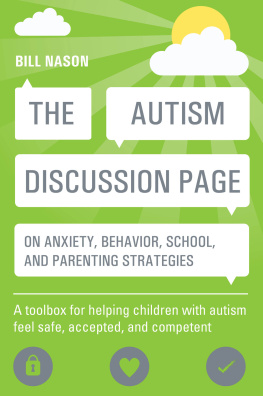
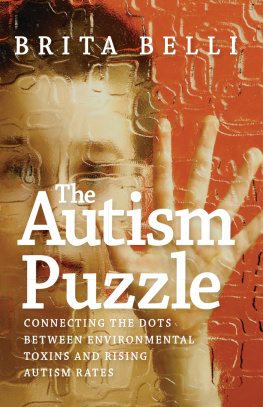
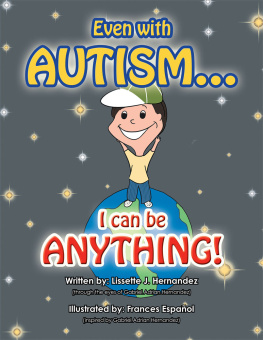
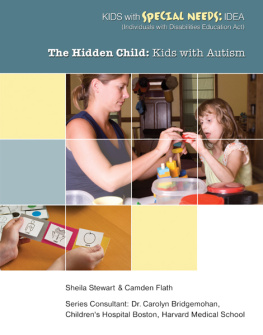
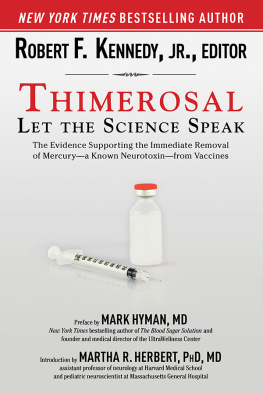
![Robert F. Kennedy - Thimerosal; Let the Science Speak [vaccine]](/uploads/posts/book/264361/thumbs/robert-f-kennedy-thimerosal-let-the-science.jpg)
